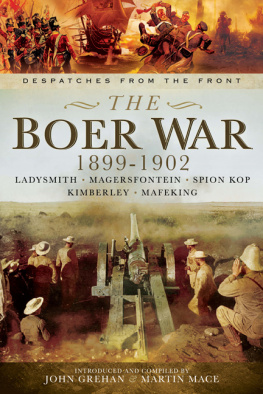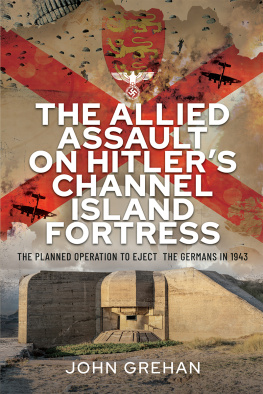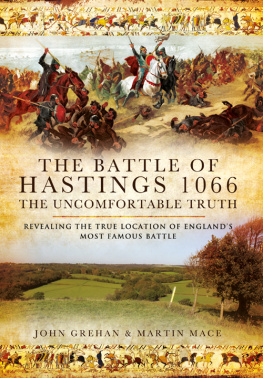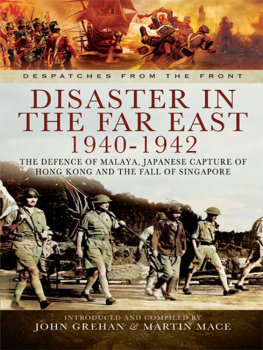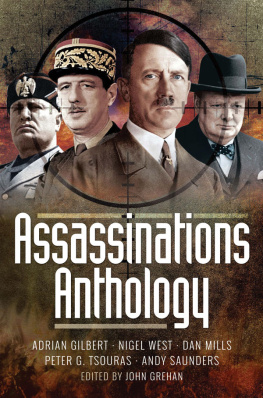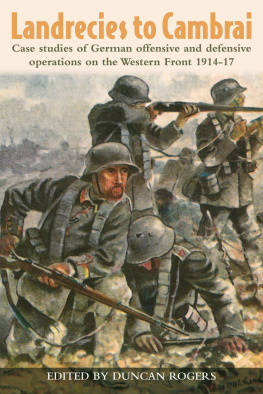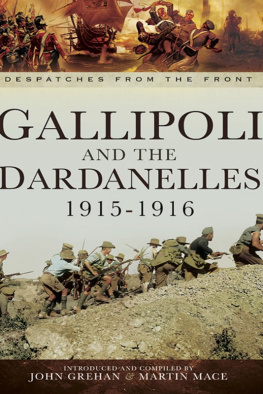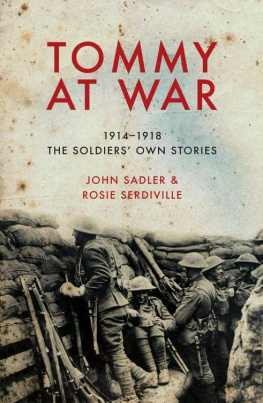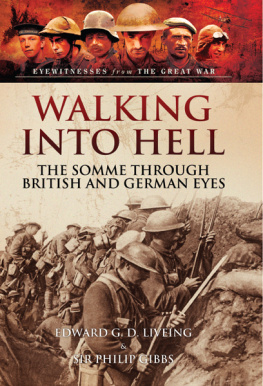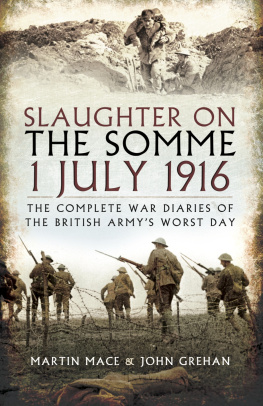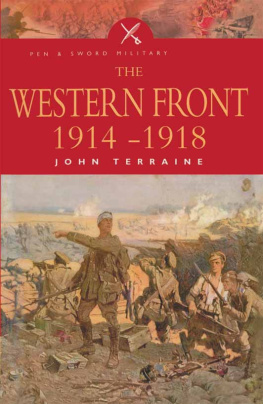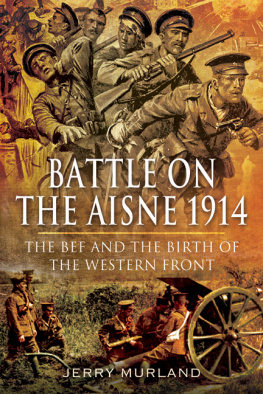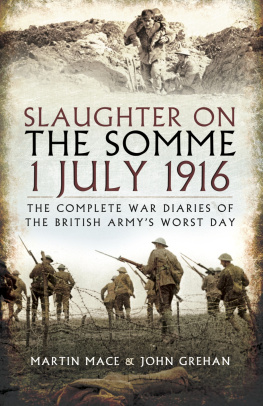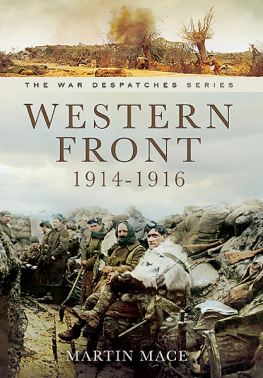First published in Great Britain in 2013 by
P E N & S W O R D M I L I T A R Y
An imprint of
Pen & Sword Books Ltd
47 Church Street
Barnsley
South Yorkshire
S70 2AS
Copyright Martin Mace and John Grehan, 2013
ISBN: 978-1-78159-321-9
PDF ISBN: 978-1-47382-941-1
EPUB ISBN: 978-1-47382-855-1
PRC ISBN: 978-1-47382-898-8
The right of Martin Mace and John Grehan to be identified as the authors of this
work has been asserted by them in accordance with the Copyright, Designs and
Patents Act 1988.
A CIP catalogue record for this book is available from the British Library.
All rights reserved. No part of this book may be reproduced or transmitted in
any form or by any means, electronic or mechanical including photocopying,
recording or by any information storage and retrieval system, without
permission from the Publisher in writing.
Typeset by Concept, Huddersfield, West Yorkshire, HD4 5JL.
Printed and bound in England by CPI Group (UK) Ltd, Croydon CR0 4YY.
Pen & Sword Books Ltd incorporates the imprints of Pen & Sword Archaeology,
Atlas, Aviation, Battleground, Discovery, Family History, History, Maritime,
Military, Naval, Politics, Railways, Select, Social History, Transport, True Crime,
and Claymore Press, Frontline Books, Leo Cooper, Praetorian Press,
Remember When, Seaforth Publishing and Wharncliffe.
For a complete list of Pen & Sword titles please contact
PEN & SWORD BOOKS LIMITED
47 Church Street, Barnsley, South Yorkshire, S70 2AS, England
E-mail:
Website: www.pen-and-sword.co.uk
Introduction
The clock was ticking. In light of the fact that Germany had declared war on France the previous day (following worsening events in Eastern Europe), the British Government delivered an ultimatum to the German Government on Tuesday, 4 August 1914.
Announcing the fact amid a strained silence that had fallen throughout the House of Commons, the Prime Minister, H.H. Asquith, stated: We have repeated the request made last week to the German Government that they should give us the same assurance in regard to Belgian neutrality that was given to us and Belgium by France last week. We have asked that it should be given before midnight.
During the evening on the 4th a reply was received from Germany. As this was considered unsatisfactory, King George V held a Council which had been called for midnight. The declaration of war was then signed.
Following this momentous event, the Foreign Office issued the following official statement: Owing to the summary rejection by the German Government of the request made by his Majestys Government for assurances that the neutrality of Belgium will be respected, his Majestys Ambassador to Berlin has received his passports, and his Majestys Government declared to the German Government that a state of war exists between Great Britain and Germany as from 11 p.m. on August 4, 1914.
As patriotic fervour swept across Britain, it was generally thought that the Great European War would be over by Christmas. In fact, it dragged on for another four years, its battles and campaigns stretching around the globe to become the First World War.
The fighting that took place on the Western Front, in Flanders and France, was, by contrast so close to Britain that the guns and detonating mines could be heard in England. So close, indeed, that in the days of telephones and trains, verbal messages could be relayed back to the United Kingdom almost instantaneously and written despatches could be shipped in a matter of hours.
The British public, therefore, received a daily digest of information through the newspapers and radio but the official reports from the commanding officers were usually more considered documents, produced only at the end of a campaign or specific period. This was so that the story of the fighting, up to that particular point in time, could be covered with a degree of completeness but, unlike the battles of earlier generations which could be fought and won in a day, the battles of the First World War lasted for days, weeks and even months. Until the final shots were fired there could be no definitive conclusions to be drawn, but because of the protracted duration of First World War battles interim reports had to be submitted.
The first of these was published in The London Gazette on 8 September 1914. This account detailed the British Expeditionary Forces (BEF) initial operations in the First Word War. Published as a separate supplement, it was the first in a succession of despatches sent back to the UK by the BEFs initial commanding officer, Field Marshal Sir John French. This, along with the succeeding ones, is presented here just as it was written almost 100 years ago. It covers the movement of the BEF to France, the early battles at Mons and Le Cateau, and the first steps in the subsequent retreat. It clearly shows the confusion of those first days as the Germans attacked with surprising speed and strength.
From information I received from French Headquarters, wrote Sir John French of events on the morning of 23 August 1914, I understood that little more than one, or at most two, of the enemys Army Corps, with perhaps one Cavalry Division, were in front of my position; and I was aware of no attempted outflanking movement by the enemy. The BEF was therefore in no danger. French had addressed his Corps and Cavalry Commanders at 06:00 hours with this information.
Yet just a few hours later, at 15:00 hours, fresh reports were received that the British position at Mons was about to be attacked by the Germans, not merely one or two corps but in considerable strength.
In the meantime, about 5 p.m., continued French, I received a most unexpected message from General Joffre by telegraph, telling me that at least three German Corps, viz., a reserve corps, the 4th Corps and the 9th Corps, were moving on my position in front, and that the Second Corps was engaged in a turning movement from the direction of Tournay. He also informed me that the two reserve French divisions and the 5th French Army on my right were retiring.
The Allies were supposed to be on the offensive. Suddenly John French is informed that not only is the BEF about to be overwhelmed by a massive enemy force but that their Allies had retired and left the British exposed to face the brunt of the German advance.
French had to respond quickly to the rapidly changing situation as the French armies were pushed back. In his own words, the only way to save the BEF from complete annihilation was by a swift withdrawal. The French were still retiring, and I had no support except such as was afforded by the Fortress of Maubeuge; and the determined attempts of the enemy to get round my left flank assured me that it was his intention to hem me against that place and surround me. I felt that not a moment must be lost in retiring to another position.
This was successfully accomplished and French was at pains to point out that the army was saved by the skill of its generals. Amongst these men, French named Douglas Haig, the man who was to replace him as commander of the BEF.
The second of John Frenchs despatches is remarkable for the fact that, despite the alarming reverses that the Allies had suffered, he still maintained the belief that these were only temporary setbacks and that once the situation had been stabilised the offensive could be resumed. Unlike some of the later stages of the war on the Western Front, these early encounters still involved complex manoeuvres, the despatches explaining the movements of the BEF in relation to those of the French Army.
The main feature of this second despatch, published on 18 October 1914, is the Battle of the Marne. Though less celebrated than some of the other battles of the First World War, none were of greater significance. It was at the Battle of the Marne, which was fought between 5 and 12 September 1914, that the great German drive upon Paris was halted. This Allied victory not only stopped the German advance it actually turned it back, with the Germans in turn being forced to retreat. The Germans then found positions in which they could hold their ground, and hold as much French territory as they could.



